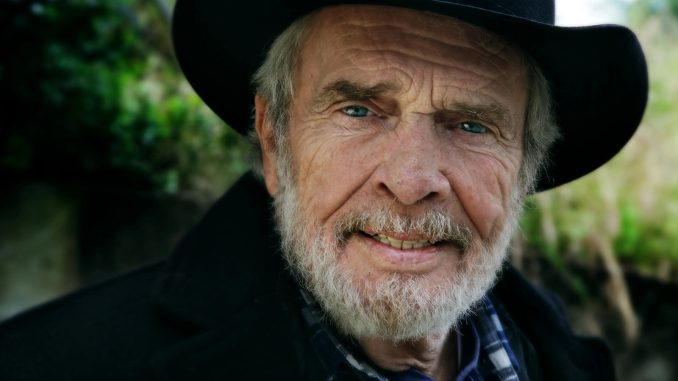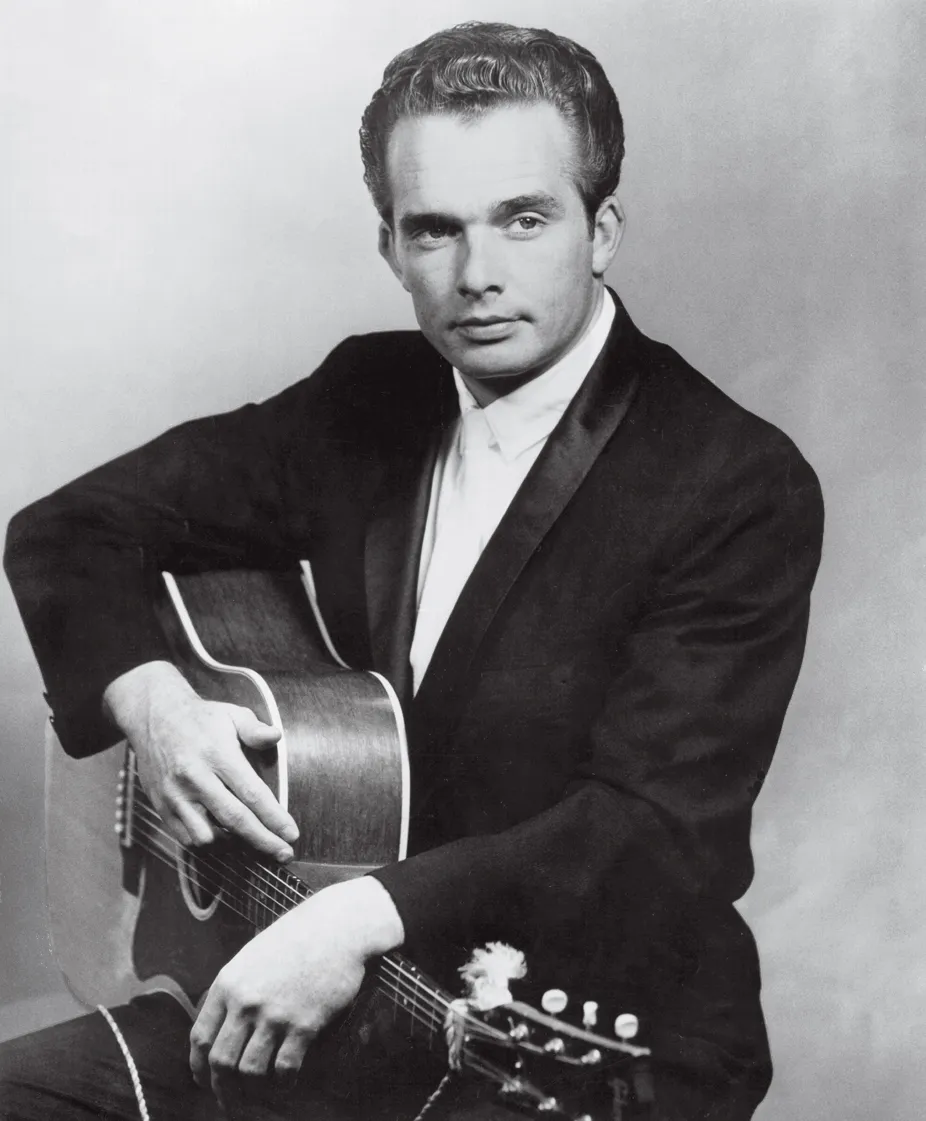
Very few people were as influential and talented in country music as Merle Haggard. Widely honored and awarded throughout his career, Merle’s discography is extremely varied, and includes 60 albums, hundreds of songs, and too many number ones to count.
Although Merle’s success also came with lots of excesses and issues, his lack of care for rules came long before becoming famous, and at some point even led to his imprisonment.
So how did Merle pass from being a troubled kid to becoming one of the biggest and most awarded country musicians ever? Stay here to know all about the impressive life of Merle Haggard, from his beginnings and family, to his life issues, incredible career, and so much more!
Today is 9/11. Merle and I married on this day. I miss him so and if I ever get the chance I’d do it all over again! Love u Forever, Theresa
Posted by Merle Haggard on Sunday, September 11, 2022
Early Life
While talking about Merle Haggard, it’s always mandatory to mention how everything began in his early life. A native of California, Merle Ronald Haggard was born on 6 April 1937, the youngest sibling of three of a humble Oklahoman family.
Before his birth, Merle’s family lived in a small apartment in Kern County for a while before eventually moving to a boxcar which his father had converted into the small house where Merle was born, and lived in his childhood. It was during those early years that Merle developed his love for music, by listening to the likes of Hank Williams and Bob Wills.
Even though Merle’s childhood home was eventually expanded to add more rooms and a bathroom, the family’s situation didn’t become any better when Merle’s father died of a stroke in 1946. According to the 2021’s biography “The Hag” by Marc Eliot, the nine years old Merle blamed himself for his father’s death.
Following Merle’s father passing, his mother went out to work and left the kids at home, giving Merle enough unsupervised time to learn how to play his older brother’s guitar on his own, but also to pursue a life of crime on the side, much to the chagrin of his mother.
Prison And Issues
At the tender age of 11, Merle Haggard was sent to a detention center for the first time, but things didn’t improve from there. His early crimes included shoplifting, hopping on freight trains, and creating ruckus in the streets: ‘All we knew was that there was something out there that was intriguing about being on your own. And it was really calling to me at an early age,’ Merle explained his rebellious attitude in a GQ Magazine 2012 interview.

During his teens, Merle did more things than most people get to do in a lifetime, including the fact he was repeatedly put in juvenile detention centers, and escaped from them. When he was 14 years old, he ran away from home to Texas with his friend and criminal accomplice Bob Teague, hitchhiking their way around and getting into trouble every time before returning to California for good. It was during these troubled years that Merle made his debut performance at a local bar, with $5 and a beer as his pay.
After a period of working many odd jobs, getting in and out of marrying his first wife Leona Hobbs, Merle was condemned to three years in San Quentin Prison in 1957.
Building His Life Back
Life in prison wasn’t easy for Merle Haggard. After a series of enduring situations which include failing at getting jobs in prison, and learning that his wife Leona was pregnant with another man’s child, Merle was tempted to escape prison once and for all with a man named James Kendrick, known as ‘Rabbit’.
Although Merle was dissuaded from escaping, his trouble-making ways put him in a solitary confinement cell. Next to him, the experienced criminal Caryl Chessman was awaiting execution, resulting in an unlikely comradeship between the pair which opened Merle’s eyes about his future. Not only was Chessman executed but also Rabbit, as the latter had escaped the prison alone, but was detained and condemned to death soon after.
Another of the life-changing events lived by Merle during these years was witnessing Johnny Cash in concert. At the time, Merle had already contemplated dedicating his life to music, but it was Cash’s performance on top of the recent events in Merle’s life, which served as the definite inspiration to take another path – in 1960, Merle was finally released from prison, but his time in San Quentin was full of ‘horrors too terrible to think about, much less talk about’ as he wrote in his memoirs.
This week in Billy Bob’s History: Merle Haggard performed at Billy Bob’s Texas. Catch his sons, @benhaggardmusic and Noel Haggard this Friday night! pic.twitter.com/Klk8nU1MK6
— Billy Bob’s Texas (@BillyBobsTexas) November 1, 2018
Career & Rise To Fame
As soon as Merle left prison, he began working as an electrician, and went back to performing music, releasing his first record “Singing My Heart Out” in 1963. Despite the little success of his debut, Merle didn’t give up, and in 1964 released Wynn Steward’s original “Sing a Sad Song”, having his first nation-wide hit. In that same year, Merle divorced his first wife, the marrying his back-up singer Bonnie Owens in 1965.
In the following years, Merle worked alongside singer and songwriter Liz Anderson in recording some of his early hits, such as “My Friends Are Gonna Be Strangers” and “I’m a Lonesome Fugitive”. At some point, his stint in prison became known by the public, but it didn’t affect his career in negative ways.
Merle’s “Strangers” was released in 1965 by Capitol Records and was the first of many successful albums in his career, most of which included his back-up band The Strangers. Some of Merle’s most-famous number-one singles include “Working Man Blues” and “I Think I’ll Just Stay Here and Drink”.
Although most of Merle’s successful songs and albums were released between the mid-1960s and the late 1990s, he continued creating music during the following decades, releasing his last album, “Timeless” in 2015.
Awards & Honors
Merle Haggard has been widely recognized for the mark he left in music. The first award he received was in the category of Most Promising Male Vocalist at the 1965 Academy of Country Music, which in the following four decades honored him with almost 20 awards. As well, the Country Music Association recognized Merle with numerous awards, including the Album of the Year in 1972 for “Let Me Tell You About a Song”.
Merle was also awarded several Grammys throughout his career, and became a Grammy Hall of Fame Inductee in 1999 for his 1968 song “Mama Tried”, followed by a Lifetime Achievement Award granted to him in 2006, the same year he also received an Icon Of The Year recognition from the BMI Country Awards.
Some of Merle’s most prominent recognitions have been his induction into the Nashville Songwriters Hall of Fame in 1977, and into the Country Music Hall of Fame and Museum in 1994. In 1997, Merle became an inductee to the Oklahoma Music Hall of Fame, and was also recognized for his contributions to American culture by the Kennedy Center for the Performing Arts in 2010.
Besides these music recognitions , in 1972, Merle was granted a pardon for all his past crimes by Ronald Reagan, who was California’s governor back then. Overall, the mark left by Merle Haggard in music and popular culture is undeniably impressive.
Death & Legacy
Not only was Merle Haggard honored with dozens of awards and titles, but he has also been referenced multiple times in pop culture. Other prominent country musicians such as Toby Keith, Collin Raye, LeAnn Rimes, and many others have either acknowledged his influence on their music or referenced his name or nickname “The Hag” in their songs.
As well, the 7th Standard Road located in California was renamed Merle Haggard Drive in 2007, honoring the fact that he grew up in that area. In 2013, Merle was given the Key to the City of Winchester in Virginia, as well as receiving a Doctor of Fine Arts degree from California’s State University.
Besides his musical accomplishments, Merle is also remembered for his incredible life story, and how he was able to put his life back in order despite all the hardships and bad decisions of his youth. As he once told GQ Magazine: ‘I sometimes feel like I’m standing up for the people that don’t have the nerve to stand up for themselves. I just enjoyed winning for the loser’.
Unfortunately, Merle died from pneumonia on the morning of 6 April 2016, the same day as his birthday number 79, but has left behind an immense legacy that will hardly be forgotten.
Leave a Reply